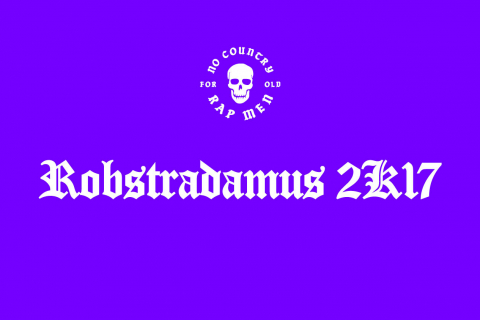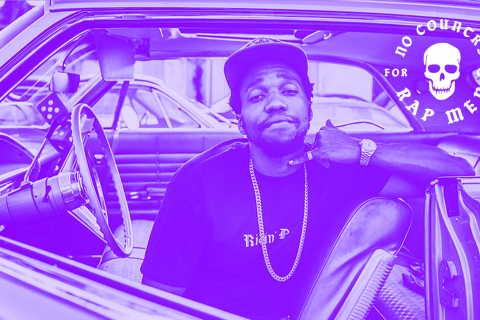
In recent years, I’ve often found myself perplexed at the fact that many, perfectly competent but otherwise unremarkable, rappers have managed to amass sizeable followings of passionate fans. Where previously this kind of loyalty was reserved for artists of exceptional ability or undeniable charisma, now a modicum of talent and an affable personality seem to suffice. A real head scratcher, it would seem, until earlier this week while I was chatting with an esteemed associate who’s had first-hand experience in several areas of the music industry. He reasoned that the current generation of rap fans hold artists to a different standard than he and I did, and that these often ‘second rate’ rappers made their fans feel more connected and ‘closer’ to them because of this ordinariness.
This might be described as the ‘performing in the bedroom mirror with a hairbrush’ effect, where the audience feel a strong connection and almost believe that they too could one day be up on the stage themselves if they develop their ‘personal brand’ enough. This is an interesting shift from the attitudes of yesteryear, where rappers often had a certain public aloofness as they struggled to keep up with the neighbourhood hustlers who set the style trends and almost always had bigger gold chains and flyer gear. There was also the issue of accessibility to consider – you needed some serious cash for studio time to hone your craft once you moved beyond the pause-tape demo, and even once you had proper music in the can there was a very limited set of gate-keepers between you and your (potentially) adoring public.
Now that Joe Macbook can record, mix, and master his own music, shoot a video for it and then go and spam the shit out of unsuspecting Twitter users, it’s an easier dream to sell. Now if the rapper they admire embodies many of the qualities the fan considers important to them (dressing well, smoking weed, pushing vague Fake Deep positivity) without appearing too technically advanced or skilled, then it’s feasible that the fan might one day be able to perform alongside them as a peer. This, in turn, breeds a particular strain of loyalty which leads the fans to buy branded handkerchiefs (may not have actually been done yet but it’s only a matter of time) and valiantly defending them in the Great YouTube Comment Section Wars.
My friend also noted that as a result of music and arts programs being effectively abandoned by the public school system, the subsequent generation lacks many of the skills required for critical artistic thinking, which produces a wave of artistic types who find it easier to mimic, replicate and recycle older, better ideas with no shame and a disturbing lack of self-awareness. He continued by pointing out that there’s also a trend to ‘deify’ artists of the past in an attempt by teenagers to create or validate their own self-identity without actually understanding them or their music. Thus Tupac and Biggie become their James Dean and Marilyn Monroe – cultish idols to be worshipped but rarely understood.
Likewise, issues which plagued rappers for years such as artistic credibility and street-level respect have been rendered virtually null and void, as a powerful meme can destroy your career quicker than a dozen shoot-outs out the front of Hot 97 ever could have. The only people who are concerned about rap ghostwriters are angry Facebook dudes who were denied entry into the Conservative Rap Coalition for being older, angrier, and 85% more bitter than I could ever aspire to be, even if I lived to a hunned.
Rap fans have evolved from being that kid wanting to dress like their favourite rapper and wear a t-shirt with their logo to now aspiring to carry their weed, be their Social Media Manager, and feature them on their new mixtape. Modern fans are superficial, ignorant of rap’s legacy and rarely care what’s being said as long as it ‘feels’ right and looks the part – hence Lil’ Yachty. The same thing can be said of any pop music fan since recorded music became commercially available, so this speaks more to rap becoming assimilated into pop culture than anything else. Pop music is essentially about feeling sorry for yourself, love songs, and jumping around like an idiot, so that’s what the public face of rap has morphed into as well.



